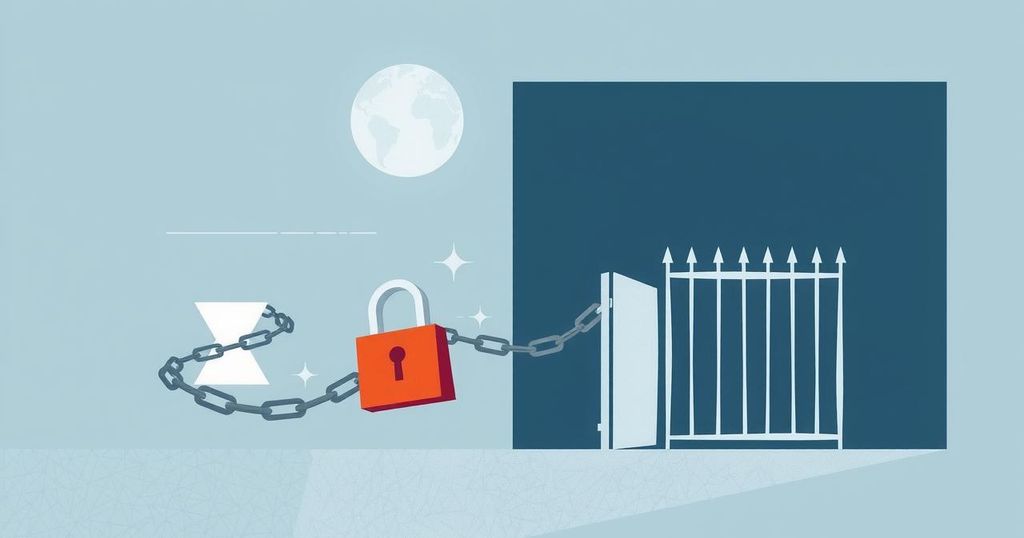Trump Administration Revokes Visas for South Sudanese Amid Deportation Conflict
Secretary of State Marco Rubio revoked all South Sudanese visas due to the transitional government’s refusal to accept deported individuals. This action intensifies the Trump administration’s ongoing deportation efforts and has resulted in legal challenges. The contrast with Biden’s Temporary Protected Status for South Sudan reflects differing immigration strategies.
On March 27, Secretary of State Marco Rubio announced the revocation of visas held by all South Sudan passport holders due to the transitional government’s refusal to accept deported citizens in a timely manner. In a social media post, Mr. Rubio indicated that the issuance of any further visas would also be restricted, citing the failure of South Sudan in cooperating with repatriation efforts. He stated, “We will be prepared to review these actions when South Sudan is in full cooperation.”
This decision mirrors an earlier threat made by President Trump regarding Colombian officials, who were similarly uncooperative in accepting deportees. Mr. Rubio’s actions underscore the Trump administration’s aggressive stance on deportation, aligning with Trump’s campaign promise to expedite the removal of foreign nationals from the United States.
Numerous potential deportees have challenged the actions of the Trump administration through lawsuits, resulting in temporary restraining orders from judges. Critics have voiced strong opposition, with Lucas Guttentag, a former Justice Department official, stating that this move exemplifies the discriminatory targeting of individuals based on nationality.
The Trump administration has intensified its deportation campaign, with Mr. Rubio revealing that he had revoked over 300 visas and was processing more deportations daily. Notably, former Costa Rican President Óscar Arias Sánchez became one of the most prominent individuals to have his visa suspended. The suspension came shortly after Mr. Arias publicly criticized Mr. Trump’s conduct.
Deportation issues with countries accepting their nationals have long plagued the U.S. due to diplomatic complications or inadequate travel documentation. During the previous Trump administration, visa sanctions were enforced against multiple uncooperative nations. In stark contrast, the Biden administration in 2023 extended Temporary Protected Status to South Sudan migrants, shielding them from deportation amid ongoing violence, set to last until May.
The revocation of visas for South Sudanese passport holders highlights a significant escalation in the Trump administration’s deportation policy, reflecting its commitment to expedite the elimination of foreign nationals from the U.S. This action has prompted legal challenges and intensified scrutiny on the administration’s approach to immigration. In light of the Biden administration’s alternative protective measures, the contrasting strategies underscore the ongoing complexity and controversies surrounding U.S. immigration policy.
Original Source: www.nytimes.com




Post Comment